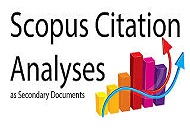Mengukur Pengetahuan Konten Pedagogik Guru Matematika: Suatu Kajian Literatur
DOI:
https://doi.org/10.33394/jk.v4i1.902Keywords:
Pengukuran, Pedagogik, Guru Matematika.Abstract
References
Abell, S. K. (2007). Research on science teacher knowledge. Handbook of research on science education, 1105-1149
Baxter, J. A., & Lederman, N. G. (1999). Assessment and measurement of pedagogical content knowledge. In Examining pedagogical content knowledge (pp. 147-161). Springer Netherlands.Hollins, Etta.R. 2011. Teacher preparation for quality teaching. Journal of Education, 62(4): 395-407. (Online), (http://jte.sagepub.com)
Bindernagel, J. A., & Eilks, I. (2009). Evaluating roadmaps to portray and develop chemistry teachers’ PCK about curricular structures concerning sub-microscopic models. Chemistry Education Research and Practice, 10(2), 77-85
Duschl, R. (2008). Science education in three-part harmony: Balancing conceptual, epistemic, and social learning goals. Review of research in education, 32(1), 268-291.
Hill, H. C., Ball, D. L., Blunk, M., Goffney, I. M., & Rowan, B. (2007). Validating the ecological assumption: The relationship of measure scores to classroom teaching and student learning. Measurement, 5(2-3), 107-118
Hill, H. C., Ball, D. L., & Schilling, S. G. (2008). Unpacking pedagogical content knowledge: Conceptualizing and measuring teachers' topic-specific knowledge of students. Journal for research in mathematics education, 372-400
Koirala, H. P., Davis, M., & Johnson, P. (2008). Development of a performance assessment task and rubric to measure prospective secondary school mathematics teachers’ pedagogical content knowledge and skills. Journal of Mathematics Teacher Education, 11(2), 127-138.
Krauss, S., Brunner, M., Kunter, M., Baumert, J., Blum, W., Neubrand, M., & Jordan, A. (2008). Pedagogical content knowledge and content knowledge of secondary mathematics teachers. Journal of Educational Psychology, 100(3), 716
McNeill, K. L., Gonzálezâ€Howard, M., Katshâ€Singer, R., & Loper, S. (2016). Pedagogical content knowledge of argumentation: Using classroom contexts to assess highâ€quality PCK rather than pseudoargumentation. Journal of Research in Science Teaching, 53(2), 261-290.
Morrison, A. D., & Luttenegger, K. C. (2015). Measuring Pedagogical Content Knowledge Using Multiple Points of Data. The Qualitative Report, 20(6), 804
Nissa, I. C. (2014). Pengaruh Problem Based Learning dengan Metode Seven Jumps terhadap Daya Pikir Kritis Mahasiswa dalam Perancangan Alat Penilaian Matematika. Jurnal Kependidikan, 13(4), 349-357.
Park, S., & Oliver, J. S. (2008). Revisiting the conceptualisation of pedagogical content knowledge (PCK): PCK as a conceptual tool to understand teachers as professionals. Research in science Education, 38(3), 261-284
Praxis. 2011. Content knowledge for teaching: innovations for the next generation of teaching assessment. (Online), (https://www.ets.org/s/educator_licensure/ckt_handout.pdf)
Phelps, G., & Schilling, S. (2004). Developing measures of content knowledge for teaching reading. The Elementary School Journal, 105(1), 31-48.
Rohaan, E. J., Taconis, R., & Jochems, W. M. (2009). Measuring teachers' pedagogical content knowledge in primary technology education. Research in Science & Technological Education, 27(3), 327-338
Schmelzing, S., van Driel, J. H., Jüttner, M., Brandenbusch, S., Sandmann, A., & Neuhaus, B. J. (2013). Development, evaluation, and validation of a paper-and-pencil test for measuring two components of biology teachers’pedagogical content knowledge concerning the “cardiovascular systemâ€. International Journal of Science & Mathematics Education, 11(6).
Shanahan, L. E., & Tochelli, A. L. (2014). Examining the use of video study groups for developing literacy pedagogical content knowledge of critical elements of strategy instruction with elementary teachers. Literacy Research and Instruction, 53(1), 1-24
Shulman, L. S. (1986). Those who understand: Knowledge growth in teaching. Educational researcher, 15(2), 4-14
Turnuklu, E. B., & Yesildere, S. (2007). The Pedagogical Content Knowledge in Mathematics: Pre-Service Primary Mathematics Teachers' Perspectives in Turkey. Issues in the Undergraduate Mathematics Preparation of School Teachers, 1.
Van Driel, J. H., Verloop, N., & de Vos, W. (1998). Developing science teachers' pedagogical content knowledge. Journal of research in Science Teaching, 35(6), 673-695.
Zhou, M. (2003). Urban Education: Challenges in Educating Culturally Diverse Children. Teachers college record, 105(2), 208-225.
Downloads
Published
How to Cite
Issue
Section
Citation Check
License
License and Publishing AgreementIn submitting the manuscript to the journal, the authors certify that:
- They are authorized by their co-authors to enter into these arrangements.
- The work described has not been formally published before, except in the form of an abstract or as part of a published lecture, review, thesis, or overlay journal.
- That it is not under consideration for publication elsewhere,
- That its publication has been approved by all the author(s) and by the responsible authorities – tacitly or explicitly – of the institutes where the work has been carried out.
- They secure the right to reproduce any material that has already been published or copyrighted elsewhere.
- They agree to the following license and publishing agreement.
Authors who publish with JK agree to the following terms:
- Authors retain copyright and grant the journal right of first publication with the work simultaneously licensed under a Creative Commons Attribution License (CC BY-SA 4.0) that allows others to share the work with an acknowledgment of the work's authorship and initial publication in this journal.Â
- Authors are able to enter into separate, additional contractual arrangements for the non-exclusive distribution of the journal's published version of the work (e.g., post it to an institutional repository or publish it in a book), with an acknowledgment of its initial publication in this journal.
- Authors are permitted and encouraged to post their work online (e.g., in institutional repositories or on their website) prior to and during the submission process, as it can lead to productive exchanges, as well as earlier and greater citation of published work.
- Open Data Commons Attribution License, http://www.opendatacommons.org/licenses/by/1.0/ (default)

This work is licensed under a Creative Commons Attribution-ShareAlike 4.0 International License.








